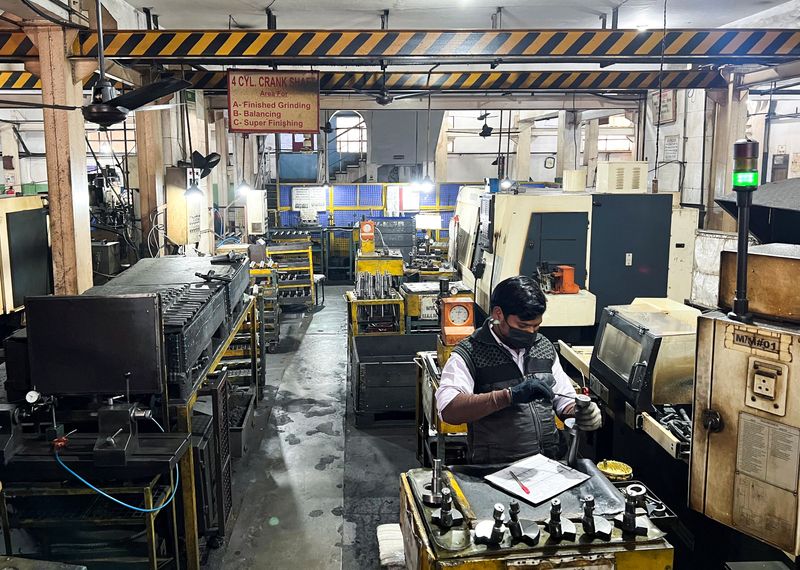Select Language

By Anant Chandak
BENGALURU (Reuters) - Indian business activity expanded at its fastest pace in seven months in February as demand remained strong for both manufacturing and services, according to a business survey released on Thursday, which also showed an easing in price pressures.
That supports the findings in a Reuters poll which found India, the fastest growing major economy, is expected to continue to grow at a steady pace over the coming years.
HSBC's flash India Composite Purchasing Managers' Index (PMI), compiled by S&P Global, rose to 61.5 this month from January's final reading of 61.2, staying above the 50-mark that separates expansion from contraction for a 31st straight month.
"The pace of acceleration in the output of India's manufacturers and service providers, combined, was at a 7-month high in February. Encouragingly, new export orders rose sharply, particularly for goods producers," noted Pranjul Bhandari, chief India economist at HSBC.
The flash manufacturing PMI for February rose to 56.7 from last month's 56.5, its highest since September, and the preliminary services PMI was at a seven-month high of 62.0 from 61.8 in January.
New orders across the private sector continued to rise at a robust pace driven by demand in the dominant services industry, which expanded at the fastest pace since mid-2010. Factory output accelerated to a five-month high.
Overall international orders increased at the quickest pace since September.
That bolstered the view for the coming 12 months with optimism among manufacturers at the highest since December 2022. However, overall business confidence slipped from January's four-month high.
However, employment didn't increase for the first time since May 2022.
Although services companies noted a stronger increase in cost burdens than manufacturers, the flash data showed a moderation in cost pressures. Overall input prices rose at the weakest pace in three-and-a-half years.
"Producers were able to do both – lower the rate of increase in output prices and improve margins," added Bhandari.
That would likely provide comfort to the Reserve Bank of India, which is expected to keep its key repo rate unchanged before a first cut in the July-September quarter.

